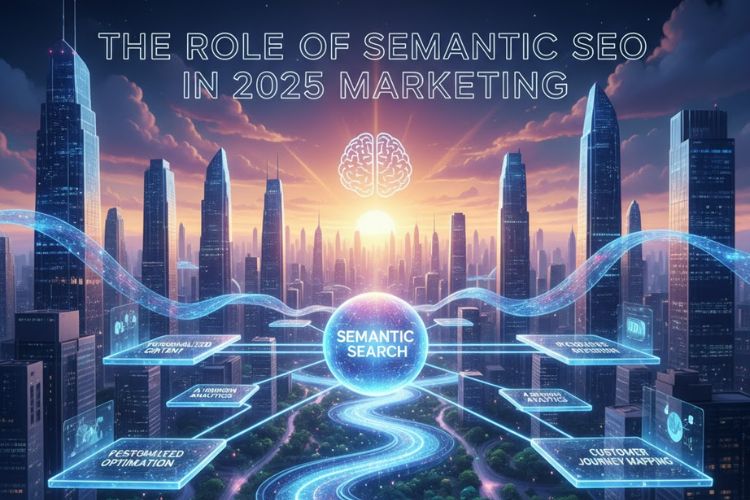Ever wondered why some brands dominate search results while others fade into obscurity? The secret isn’t just keywords anymore—it’s context. As 2025 unfolds, Semantic SEO has become the backbone of smarter, intent-driven digital marketing. Even top agencies, like a Digital Marketing Company in Surat, are leveraging this evolution to redefine how content connects with audiences.
What Exactly is Semantic SEO?
Semantic SEO goes beyond inserting keywords—it’s about understanding the *meaning* behind them. Google’s algorithms now interpret relationships between topics, entities, and search intent. Instead of ranking pages stuffed with phrases, search engines prioritize content that answers *why* people search. This shift demands marketers think like humans, not robots.
In simpler terms, Semantic SEO focuses on how users think, not just what they type. When someone searches for “best running shoes,” Google doesn’t just match keywords—it identifies intent: Are they looking to buy, compare, or read reviews? That’s where semantics transform your visibility.
Why Semantic SEO Dominates 2025
The rise of voice search, AI assistants, and generative models like ChatGPT has pushed semantic understanding to the forefront. Studies by Search Engine Land suggest that over 65% of online searches in 2025 will be conversational. That means your content must *talk* like a human to stay relevant.
Key Factors Driving This Shift
- AI-Powered Search: Search engines interpret queries with context—tone, location, and even previous searches.
- Zero-Click Results: Google delivers more direct answers, rewarding semantically rich content.
- Topic Clusters: Interconnected web pages and related subtopics now outrank isolated blogs.
How to Apply Semantic SEO in Your Marketing Strategy
Implementing Semantic SEO means thinking holistically—each page should fit into a larger topical map. For example, a blog on “email marketing trends” could connect to “automation tools,” “conversion analytics,” and “customer engagement.” This creates a network of contextual relevance.
Pro Tips to Strengthen Semantic Optimization
- Focus on Entities, Not Just Keywords: Optimize for recognized entities (brands, products, people) to improve topical authority.
- Answer Questions: Use FAQ-style sections and conversational language that addresses search intent directly.
- Leverage Structured Data: Schema markup helps search engines *understand* your content, improving click-through rates.
Brands offering Digital Marketing Services in India are now embedding semantic frameworks into their campaigns—blending intent mapping, AI keyword clustering, and conversational UX design.
Real-World Impact: From Rankings to Relationships
Semantic SEO isn’t just about traffic—it’s about *trust*. When your content consistently delivers value aligned with user intent, you don’t just attract visitors; you build relationships. Businesses using semantic optimization have reported up to 35% higher engagement rates (source: HubSpot).
Imagine two blogs: one lists “top laptops in 2025,” while another discusses *why* students prefer certain laptops for remote work. The latter wins because it connects emotionally and contextually. That’s semantic power in action.
Benefits of Embracing Semantic SEO
- Improved organic visibility and topical authority.
- Higher dwell time due to relevant, intuitive content.
- Better conversions through intent-focused messaging.
- Enhanced brand credibility with structured knowledge graphs.
FAQs About Semantic SEO
1. How is Semantic SEO different from traditional SEO?
Traditional SEO focuses on keywords, while Semantic SEO emphasizes *meaning*, *intent*, and *context*. It helps content rank for broader, more natural search queries.
2. Is Semantic SEO relevant for small businesses?
Absolutely! Even small brands benefit from contextual content. By answering user intent clearly, they can compete with bigger players in niche searches.
3. How do AI tools support Semantic SEO?
AI tools analyze user behavior, cluster topics, and identify semantic relationships—helping marketers create more relevant, optimized content.
4. Does Semantic SEO impact voice search optimization?
Yes, significantly. Voice assistants rely on semantic understanding, making conversational and context-rich content crucial for voice-based queries.
Also Read >> AI in Ad Optimisation: Maximise ROI with Smart Bidding
Final Thoughts
In 2025, Semantic SEO isn’t optional—it’s the language of digital relevance. The brands that understand user intent and contextual storytelling will dominate organic search. Start optimizing for meaning, not just words, and you’ll future-proof your marketing strategy for years to come.
Blog development Credits:
This article was envisioned by Amlan Maiti, developed using advanced AI research tools like ChatGPT, Google Gemini, and Copilot, and fine-tuned by Digital Piloto PVT Ltd.



